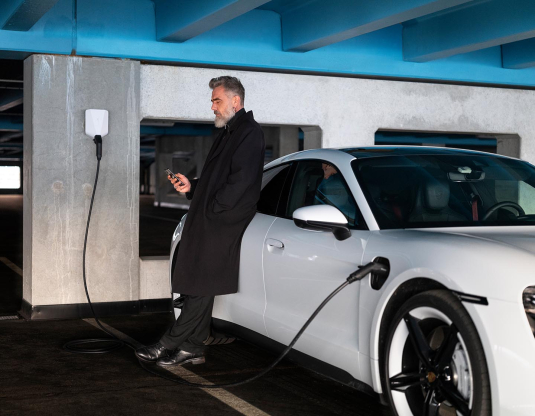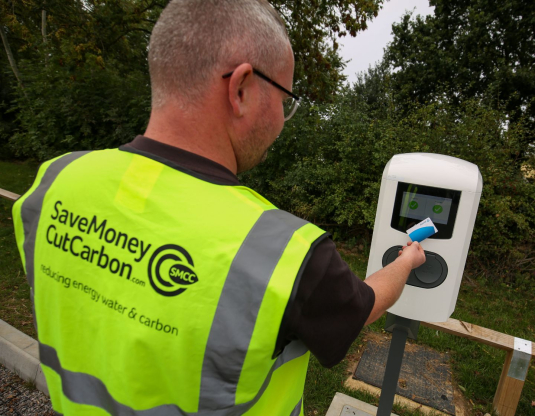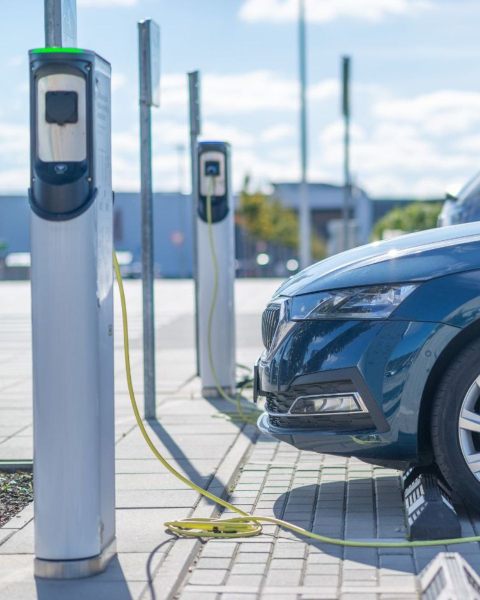In the dynamic landscape of sustainable transportation, businesses are increasingly recognising the importance of integrating Electric Vehicle (EV) Charging infrastructure on their premises. This practice extends beyond mere functionality; it strategically aligns with environmental consciousness, attracts eco-centric customers and employees, and positions businesses as pioneers in the adoption of clean energy technologies.
Types of EV Charging Stations
Understanding the types of EV charging stations is a crucial foundation for businesses entering this realm. Single Phase (up to 7.4kW), Three Phase (up to 22kW), and DC Fast Charging (24kW to 350kW) represent the main categories. Among these, Three Phase is commonly preferred for its expedited charging times, making it a practical choice for business settings.
Operational simplicity defines the process of EV charging at businesses. Users simply park their electric vehicles at the charging station, connect the appropriate charging cable, and initiate the charging process. This user-friendly approach enhances accessibility for both employees and customers.


Financial Considerations for Installing EV Charging Stations
A significant consideration for businesses is the financial aspect of installing EV charging stations. Costs vary based on factors like the number of stations, charging capacity, installation requirements, futureproofing, and potential utility upgrades. Our E-Mobility experts can provide a desk-based assessment allowing you to facilitate informed decision-making.
Businesses have the option to charge users a fee for utilizing EV charging stations, although some may opt for offering free charging as a strategic perk. Customisable payment systems allow businesses to specify who is charged, at what rate, and exempt certain users, contributing to a flexible and user-centric approach.
Payment Systems and Incentives
Incentives play a pivotal role in encouraging businesses to embrace EV charging infrastructure. The Workplace Charging Scheme (WCS) Grant, offering £350 per socket, stands as a notable example. Engaging with E-Mobility experts can provide businesses with insights into available incentives and their eligibility.
Maintenance and Monitoring
Charging times for electric vehicles are contingent on various factors such as battery capacity, on-board charger capabilities, charging station power output, and the current charge level of the vehicle. Three Phase charging, with a typical full charge time of 4-8 hours, and DC rapid charging, achieving an 80% charge in around 30 minutes, present businesses with versatile options.
Routine maintenance is essential for the seamless functioning of EV charging stations, encompassing equipment inspection, charging connector cleaning, and ensuring overall functionality. Our team can offer remote monitoring services for prompt issue detection and resolution, while tailored aftercare and maintenance packages from E-Mobility experts cater to specific business needs.


Management and monitoring of charging station usage are facilitated through integrated software, allowing businesses to track usage patterns. Incorporating payment software further enhances control by enabling pricing regulation, health monitoring, and customer support. This software is easily accessible through web portals or mobile apps.
Integration of Renewable Energy and Strategic Facility Planning
Businesses can integrate renewable energy sources, such as solar panels, to power EV charging stations. This not only aligns with sustainability goals but also contributes to reduced operating costs, creating a dual impact on the environmental and financial fronts.
While dedicated parking spaces are not obligatory, they enhance accessibility and user convenience. Clearly marked EV parking spots near charging stations mitigate congestion and confusion, contributing to a streamlined and user-friendly experience.
The selection of appropriate EV charging equipment involves considerations like charging speed, scalability, user interface, grid capacity, and network connectivity. Expert consultation with our E-Mobility experts ensures businesses make informed decisions aligned with their unique needs and objectives.
Businesses have the flexibility to limit access to EV charging stations exclusively to employees. Access control methods, such as RFID cards, can be implemented to restrict usage and track individual usage patterns, contributing to a controlled and secure charging environment. If you are offering revenue generating charging effective promotion of EV charging services is crucial for maximizing utilization. Businesses can leverage various channels, including websites, social media, physical signage, and charging apps, to expand visibility and attract a diverse user base.
Conclusion
In conclusion, the integration of EV charging infrastructure into business settings is a strategic move that transcends mere functionality. It reflects a commitment to sustainability, a forward-thinking approach to technological advancements, and a proactive stance in the evolving landscape of electric mobility. As businesses embark on this transformative journey, understanding the intricacies and making informed decisions contribute to a seamless and successful integration into the dynamic and ever-evolving realm of electric mobility.





